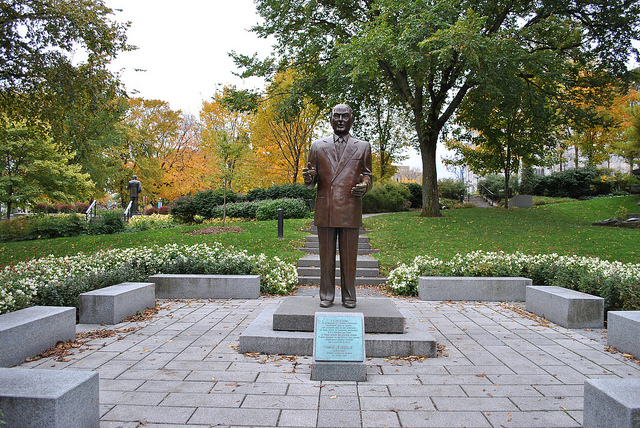What’s amazing about the Quebec sovereignty issue is how it flashes up seemingly out of nowhere, only to drop to a flicker just as quickly. It’s happening again now. The Parti Québécois was way ahead in the polls and expected a cakewalk, only to see its campaign blow up, with the Liberals now pulling ahead at the halfway point.
When it does flash up, a peculiar entity called “English Canada” flashes up with it. Other than in relation to Quebec nationalism, this thing hardly exists. And what remains of it is just a shadow of its former snarling self — the old British colonial mentality bristling with anti-French sentiment. Indeed, as it flashes up this time, it seems mostly made up of media chatterboxes in Ottawa and Toronto.
A few of them are immediately onto the old stuff — “kick them out,” “partition Quebec” — but the deeper story is actually that “English Canada” has changed profoundly in the last generation, much of it in response to the separatist threat — so much so that the threat itself, although it still exists, has lost its fire and is increasingly confined to ambiguity and desperate measures.
Let me crank this story back in a personal way. I was in the thick of it when it more or less began, as a reporter for the old Montreal Star. I had covered Pierre Laporte in his quest for the Liberal leadership before he was assassinated by the terrorist FLQ. I knew Robert Bourassa quite well before he became premier. I even came within a whisker of being blown to bits by an FLQ bomb behind Place Ville Marie. I also followed PQ founder René Lévesque around on his airplane in the 1970 election. And I was involved in a telling incident in that election.
The Star, like the Gazette, had ignored French Quebec until then, except as some kind of folkloric backwoods and corporate hinterland. The Star had started to open up. Hiring me, a bilingual journalist (from the Canadian Press), was part of that. Others followed, but there were few bilingual staff when I got there.
The Star was being “liberal” about Lévesque, seeing him and his mostly young followers as 1960s flower children and student rebels. That is, until a poll came out showing the PQ right behind the Liberals. A panicked editorial was written, labelling Lévesque a “Kerensky” after the brief democratic prime minister between the Russian czar and the Bolsheviks in 1917. In other words, Lévesque may be a nice guy, but the communists will be close behind (the Cold War was on). They also strongly implied that French Canadians couldn’t be trusted with democracy.
An uproar ensued. On the hustings, Lévesque was eloquently furious. I wrote up a short letter distancing myself from the editorial, brashly intending to hand it in to my own paper as a letter to the editor. Another journalist circulated it and in the end nearly the entire editorial staff — 40 people — signed it. The paper refused to print it at first, then relented, defusing the issue.
When I first got to Montreal in the mid-1960s, I was shocked by the attitudes of superiority and contempt for French Canadians still current in much of English Montreal. To make a long and prickly story short, English Montreal is now mostly effortlessly bilingual, official bilingualism has been the law of the land for 40 years, anglophone parents all over Canada have been known to squabble over limited spaces available to get their kids into French immersion, considerable French-language activity and services exist in most anglophone provinces — notably the key one which is Ontario, where the last two premiers have been bilingual (as is the departing Alison Redford of Alberta.)
All this may seem thankless when separatism flares up and the urge is to panic. But in fact, it’s working. Unlike in Lévesque’s day, when the young people were separatist, the young people are now polling lower than the old on separatism. One could say that they’ve become more cosmopolitan. They travel more. They’re all over Canada. But something else has changed, too: “English Canada” is more cosmopolitan as well. Quebecers with an accent are less likely to meet with unpleasantness.
In the end, separatism needs an intolerant English Canada to bounce off from. It had that in Lévesque’s day. Since then, its rationale has gotten weaker and the game has been to search out new reasons that tend to be abstract and historical.
Not to say that some new constitutional arrangement might not evolve. But that’s for the next generation. For now, even if Pauline Marois were to win a mathematical majority, her capacity to launch, much less win, a referendum is sorely compromised. When it flashes down, this time it might be for good.
Ralph Surette is a freelance journalist in Yarmouth County. This article was first published in the Chronicle Herald.
Photo: yngwiemanux/flickr



